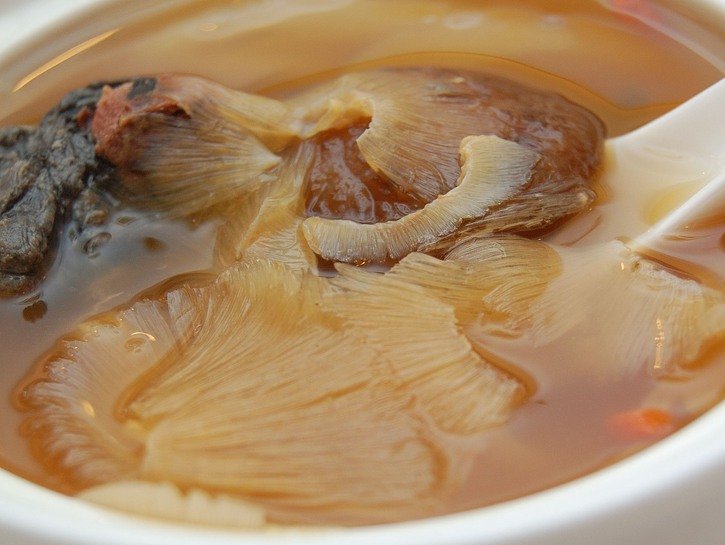Believe it or not, the government has officially weighed in on the saying “you are what you eat.” From poisonous or endangered to straight up questionable, here are the 17 foods that the U.S. has banned nationally:
1. Kinder Surprise Chocolate Eggs

These European treats are prohibited in the U.S. thanks to a federal ban on non-edible items being placed inside food products, similar to Nestle’s discontinued Wonder Ball.
2. Haggis

Haggis is the national dish of Scotland and is incredibly divisive. Some Scots can’t get enough of it, while others admit that they think it’s pretty gross. The dish is made with minced sheep’s pluck, which is the heart, liver, and lung. Because the USDA has a ban on lung in food products, it cannot be imported to the U.S.
3. Casu Marzu

This monstrosity is what happens when you intentionally infest Italian Pecorino Romano cheese with maggots, and allow them to lay eggs in it. Not only is it not allowed in the U.S., its legality isn’t entirely certain in Italy, as it isn’t officially recognized by the Italian agricultural ministry.
4. Ackee Fruit

This fruit of Jamaican origin is banned in the U.S. because, depending on its ripeness, it can fluctuate between enjoyable and deadly. If it is not ripened correctly, high levels of Hypoglycin A and B in the fruit can be fatal if swallowed.
5. Foie Gras

Foie gras isn’t banned uniformly across the U.S., but is banned in California owing to its arguably unethical production method. To produce foie gras, geese are force fed through tubes in order to enlarge their livers. The result makes for a fatty and succulent dish, but is also cruel and inhumane for the bird.
6. Unpasteurized Milk

Many states ban raw milk, because pasteurization is a vital process in removing microbes which can be dangerous or even fatal for humans.
7. Shark Fins

Shark fins, long known as a Chinese delicacy have been banned in the States for much of the last couple of decades because overfishing poses a grave threat to the global shark population.
8. Horse Meat

This isn’t officially prohibited, but there is a de facto ban on horse meat because federal law prohibits spending tax dollars on the inspection of horse meat and horse slaughterhouses.
9. Beluga Caviar

Beluga caviar, the eggs of a beluga sturgeon, originate primarily in the Caspian Sea basin. Importing beluga caviar to the U.S. is banned as a protective measure against overfishing.
10. Pig’s Blood Cake

This traditional Taiwanese dish, consisting of pork blood and sticky rice, is banned by the USDA for sanitary reasons.
11. Sassafras Oil

Apart from carcinogenic properties, the safrole and shikimol in sassafras oil are used in the production of the psychoactive party drug.
12. Absinthe

Absinthe was banned entirely in the U.S. until 2007, but the ban still exists, albeit with several provisions. Absinthe can now be imported to the U.S., but only if it does not contain the hallucinogenic chemical thujone. Also, the word absinthe cannot stand alone on the label, and the label may not depict hallucinogenic effects.
13. Mirabelle Plums

These plums, which originate in Lorraine, France, are a protected-origin fruit banned in the U.S. for reasons we can’t quite figure out.
14. Red Drum

Red Drum, which underwent a sudden popularity boom in the 1980s, now cannot be sold anywhere in the U.S. besides Mississippi due to regulations attempting to allow the redfish population to regrow.
15. Lazy Cakes

These snack cakes contain the sleep-inducing hormone melatonin. They have been banned in Arkansas due to the potential danger of kids getting a hold of them. Yeah, we could see that.
16. Fugu

Fugu, a Japanese pufferfish, requires a special license (which itself requires serious training to obtain) to cook because the fish contains tetrodotoxin, a neurotoxin which could cause asphyxiation if it is not cooked properly. Yikes!
17. Sea Turtles

Sea turtles cannot be legally imported either as a food item or otherwise, as they are endangered.
18. Queen Conch

Importing the Queen Conch has been illegal in the U.S. since 2003 due to serious overfishing threatening its wild population.
